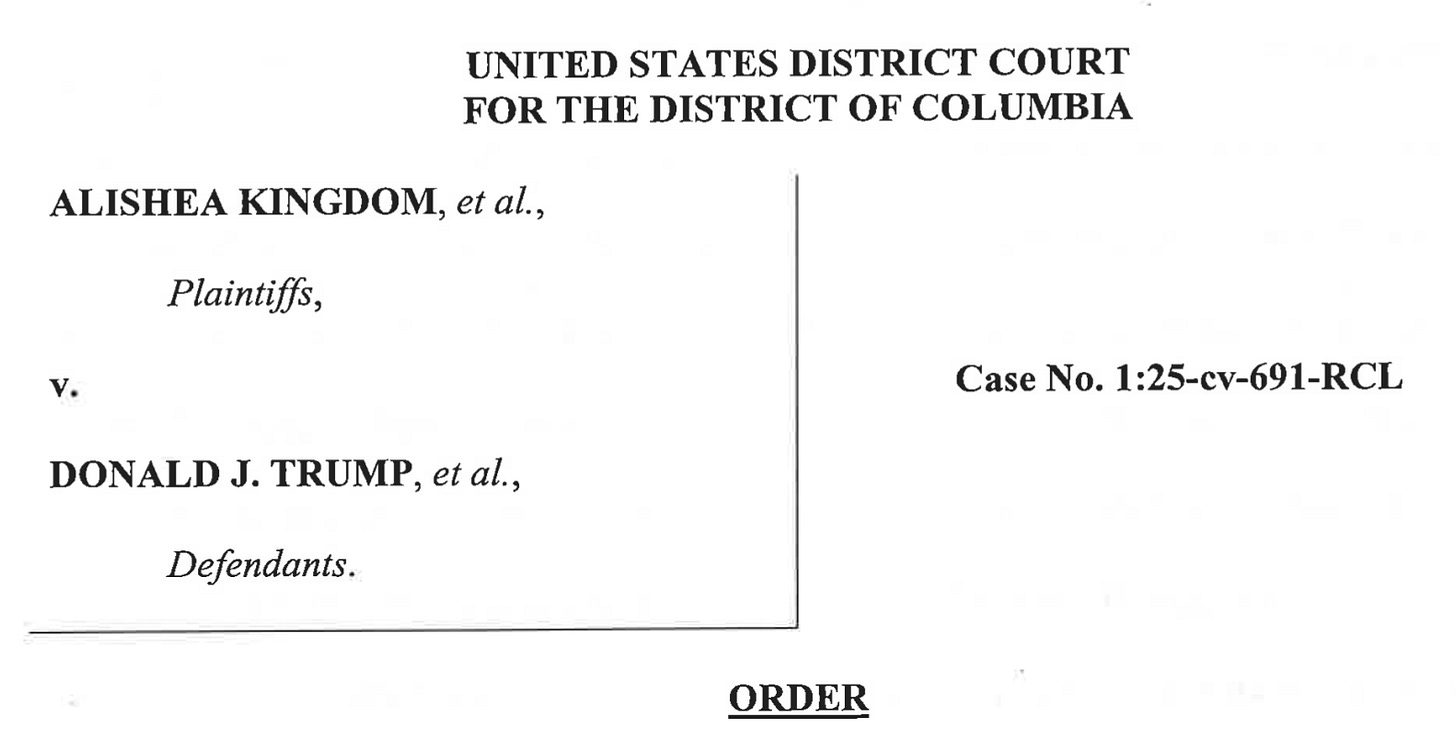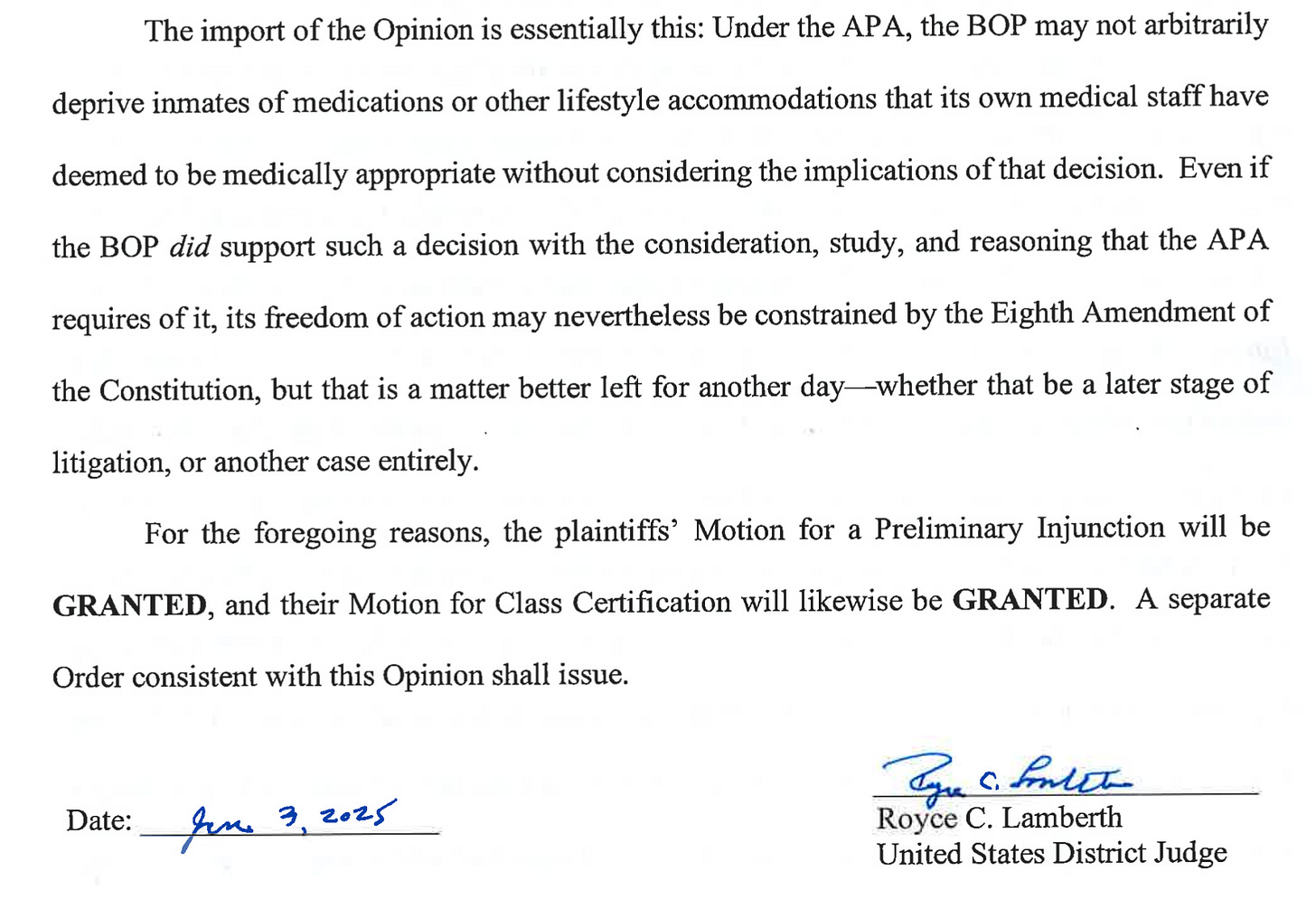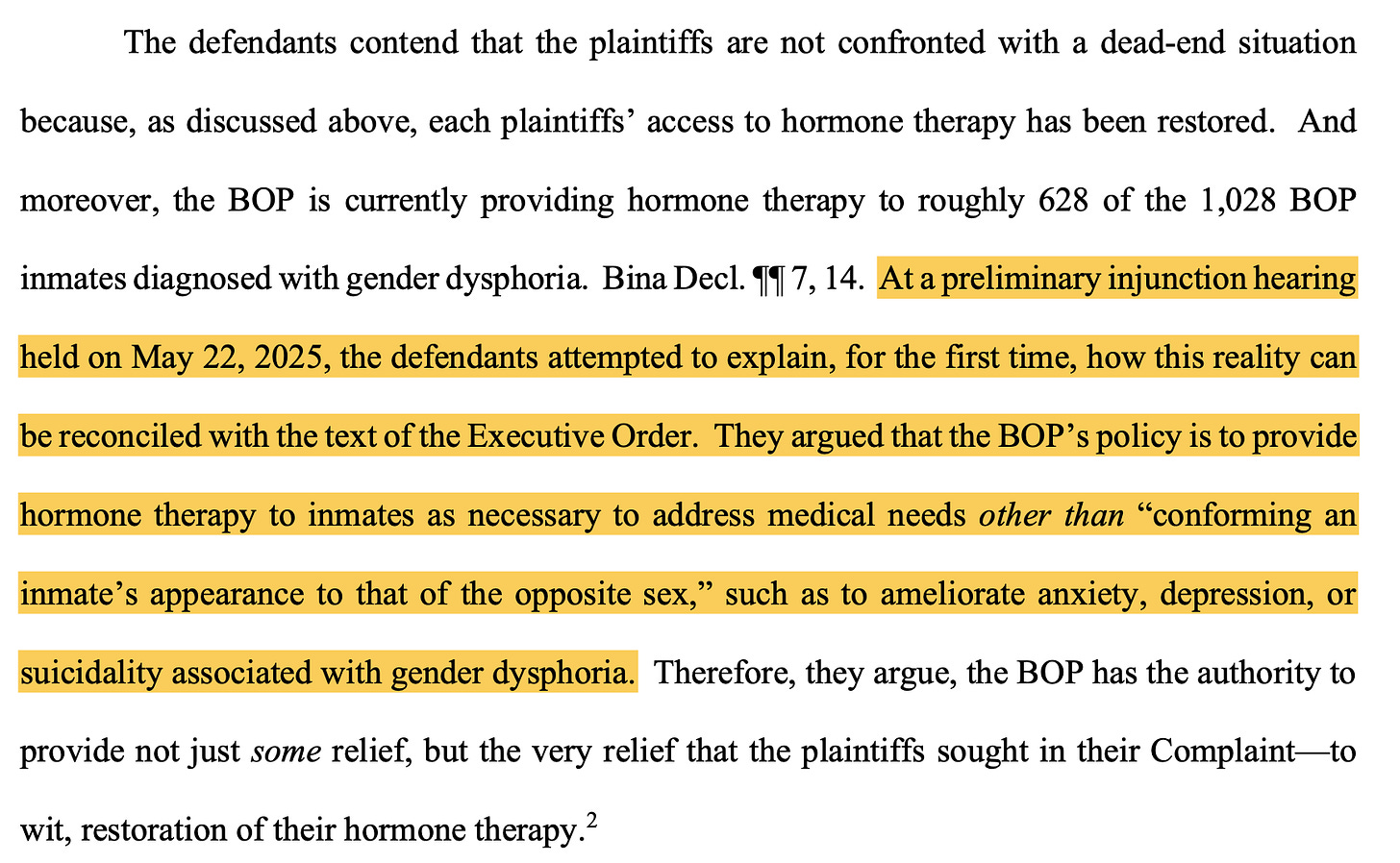Federal judge protects trans care for federal prisoners, blocking Trump order for now
Disputing Trump's oft-repeated "gender ideology" claims, Judge Lamberth wrote that "the plaintiffs do not seem interested in propagating any particular 'ideology.'"
A federal judge on Tuesday ordered the federal government to continue providing transgender people in federal prisons with hormone therapy and social accommodations like clothing that they would have been allowed before the Trump administration tried to end such policies.
In a 36-page opinion, U.S. District Judge Royce Lamberth agreed that the class action litigation against the Trump administration is likely to succeed, certifying a class and granting a class-wide preliminary injunction that will remain in effect during litigation.
The lawsuit challenges President Donald Trump’s January 20 executive order defining “sex” that included restrictions related to federal prisons and the Federal Bureau of Prisons’s implementation of that order.
“[E]ven taking the Executive Order’s rationale at face value, it has little, if anything, to do with the agency’s decision to discontinue inmates’ gender-affirming care,“ Lamberth wrote.
As part of his ruling, Lamberth certified a class of “all persons who are or will be incarcerated in the custody of BOP facilities, with a current medical diagnosis of gender dysphoria or who receive such a diagnosis in the future” — meaning the order protects all trans people so diagnosed in custody.
Over the past six months, Lamberth — who was nominated to the federal bench in March 1987 and is the last Reagan appointee still hearing cases on the district court in D.C. — has steadfastly protected the rights of trans people in prison, with Tuesday’s order being the most broad decision to date.
Lamberth, who turns 82 next month, has been hearing cases challenging the Trump administration’s efforts to end protections for trans people in prisons since February — issuing a temporary restraining order in one lawsuit shortly after a hearing held February 4. After converting that to a preliminary injunction as to specific individuals who sued, the plaintiffs continued amending their complaint to add additional transgender plaintiffs as issues arose. Lamberth extended his preliminary injunction to those people — including by issuing a March 19 order that two trans women be returned to women’s facilities after they were transferred to men’s facilities — with the most recent order on May 15.
During this time, on March 7, a class action lawsuit was filed, seeking class-wide protections for trans people in the custody of the Bureau of Prisons (BOP). After a late-May hearing, Lamberth issued his ruling Tuesday.
Addressing Trump’s obsession with “gender ideology” — as stated in the January 20 executive order that set all of this in motion — Lamberth put it plainly.
“By taking hormone medications and accessing social accommodations, the plaintiffs do not seem interested in propagating any particular ‘ideology’; to the contrary, their sworn declarations make clear that they are taking these measures to lessen the personal anguish caused by their gender dysphoria, a benefit on which they have relied for years under the BOP’s longstanding policy of providing this type of care,” he wrote.
Further, in explaining why he believes the plaintiffs are likely to succeed in their claim that the BOP actions violate the Administrative Procedure Act (APA), Lamberth wrote, “[N]othing in the thin record before the Court suggests that either the BOP or the President consciously took stock of—much less studied—the potentially debilitating effects that the new policies could have on transgender inmates before the implementing memoranda came into force.”
Finally, Lamberth left for “a later stage of litigation, or another case entirely“ the question of whether the Trump administration’s actions violate the Eighth Amendment.
This is so, Lamberth had noted earlier in his opinion, given that his injunction fully addressed plaintiffs’ claims on APA grounds.
The unusual “preemptive compliance” case
Tuesday’s opinion also described an unusual situation that has developed since Lamberth and others had begun blocking these policies in recent months: BOP appears to have preemptively taken actions undermining Trump’s executive order in order to argue that plaintiffs’ lawsuit here is moot.
Specifically, BOP acknowledged that it — long before Tuesday’s order — was providing more than half of the trans people in BOP custody with hormones.
Lamberth rejected DOJ’s argument that such provision moots the lawsuit because it constitutes “voluntary cessation” that could change “as soon as the litigation has concluded.“
Additionally, Lamberth also questioned BOP’s underlying claim that providing such hormone therapy is allowed under the executive order. Dropping a footnote “to underscore the apparent inconsistency of this position with the text of the Executive Order,“ Lamberth wrote, “The defendants appear to be relying on a fabricated distinction that appears nowhere on the face of the Order—representing that some prisoners seek medical treatment solely for appearance conformity, with no other symptoms of gender dysphoria requiring medical attention, and it is merely those prisoners whom the Executive Order bars from receiving hormone treatment.“
It was, Lamberth wrote, a point ultimately irrelevant to Tuesday’s ruling.
This advance compliance does, however, raise a very interesting question given the Trump administration’s intransigence to compliance in other situations.
Specifically as to transgender-related policies, it seems notable that — in a situation where the federal government is legally and constitutionally responsible for the well-being of the people involved — the Trump administration is not only acknowledging the reality of trans people’s existence but also the necessity and value of the provision of the very same medical care it is seeking to undermine or even eliminate elsewhere.






Responsibility, accountability … Trump, despite his oath to protect the Constitution, chooses to wash his administration clean of such minor affectations.
One felon - the Big Boss with an ideological shiv - threatens other felons … and the privacy of their sexuality … and not, this time, a Bergdorf dressing room.